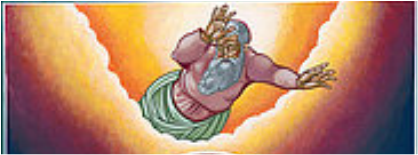 I vividly remember the first time I read a poem by Jessica Powers. It was while I was making use of the time on a flight home by investigating a complimentary copy of a spiritual magazine I had brought along to see if it was worth a future subscription. The issue highlighted her poetry, and I ended up spending the entire flight on a single work, The Garments of God. I have always enjoyed poetry, but rarely have I been as captivated by any one piece of writing as I was by this poem. The Garments of God still stirs my soul, though I have to admit that much of her poetry has that effect. That one, however, will always remain special. Why I have chosen to reflect upon some of her work now is that a frequent theme in Powers’ poetry is God’s mercy. It is appropriate as we celebrate the Jubilee Year of Mercy, a time when we should be reflecting upon mercy and its place in our lives. It is not only through the gospels, but also through the writings of holy men and women that we learn that mercy is something both offered to us, and to which we must cling, even if feebly. 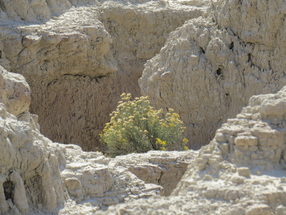 Jessica Powers was a successful writer who entered religious life when she was in her late 30’s. She lived as a Carmelite nun, known as Sr. Miriam of the Holy Spirit, until her death at 83.* All of her poetry attests to a deep immersion into the heart of Jesus. One of her poems, Repairer of Fences, is based upon a passage of Scripture (Isaiah 58:12) which obviously touched her deeply.** There is a line in that poem which leaps out and speaks of mercy: “Fumbler and fool that I am, with things around me of fragile make like souls, how I am blessed to hear behind me footsteps of a Savior!” Seemingly with a sigh of gratitude, she acknowledges that no matter how fragile we are the Savior is not far off. Her point is very astute and quite important: we must acknowledge that indeed all people are fragile, and that God is well aware that He made us, and therefore our world, this way. We could ponder (and even get stuck on) the question of why a perfect God would make everything this way. But I think that would be a futile pursuit. Instead, as Jessica Powers seems to encourage, rather than tarrying over why God did something which is complex and beyond our understanding, we should reflect upon the mercy of God who is ‘behind us,’ accompanying us on our journey. I do not think God dwells on our imperfection, but rather is focused on how much He loves us. We are the ones who get caught up in our perceptions of our own weakness and therefore lose focus on the great gift of mercy offered to us. It is not that our sin is unimportant: we should be aware of it and be sorrowful for it. But the point is that we should not get so caught up in the knowledge of how imperfect we are that we lose sight of the unfathomable depth of mercy into which we are immersed. We should never fear to approach God in asking for help or forgiveness. 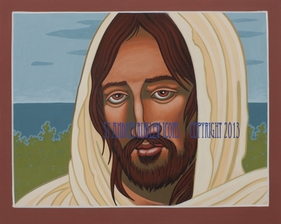 One thing we observe in the gospels is that in every encounter Jesus had during His ministry, He was focused on the healing of a person, not on their affliction, whether spiritual or physical. His eyes were on the person, not the infirmity; He welcomed people and did not focus upon their lack. Jesus proclaimed “glad tidings to the poor, liberty to captives, recovery of sight to the blind, freedom for the oppressed, and a year acceptable to the Lord.” (Slight paraphrase of Luke 4:18-19) He certainly knew the world into which He entered not only because He was fully human, but also because of His oneness with the Father, the Creator of the Universe. He did not look down upon that which He had created, nor did He judge those of us who, as Powers put it, are ‘fumblers and fools.’ When Jesus approached someone, He did so with the tenderest mercy. If it was a man born blind, a woman with a flow of blood, or a leper who probably smelled bad, Jesus brought the freedom from sickness which they sought. If he came upon a dreadfully corrupt tax collector, a possessed man, or an adulterous woman, He would set them free from the burden of their sin. But instead of berating them for their previous behaviors, He would simply say to sin no more. He knew that maybe some of them would not be able to be as strong as they wanted to be, but He also knew that after such a loving encounter, they would be forever changed. His mercy would not make them perfect, but it would help them to fight the temptation to self-loathing or self-recrimination, and instead move them toward the goodness that He saw in them. They would know that they were loved not for what they did or did not do, but for who they were and for whose they were as children of God. The footsteps of Jesus were indeed behind them, giving them courage to try to live a renewed life with God. But we can be assured that not one of them became perfect, nor did the healing mercy of Jesus expect this of them.  We are meant to focus on the presence of Jesus who accompanies us throughout our lives. As Jessica Powers points out in her poetry, we are blessed to hear the footsteps of Jesus behind us. He is not watching to see if we fail or to keep tabs on our sinfulness. Rather, He is there to offer mercy when we need things to be repaired in our lives. He offers graces to us that help us to deal with our own imperfection and for us to grow in holiness. He is there to build up, not to tear down. What makes God’s mercy so amazing, however, is that Jesus does not just offer it to those who approach Him, but He offers it to everyone. In the gospels we can see that He brought it to His enemies and detractors continually, even when He seemed to have lost His patience with them, such as when He overturned tables in the Temple. He wanted the blind Pharisees to have new insight in which to see that their behavior was not merciful toward the poor, and that they were arrogant toward those to whom they were meant to be an example. Jesus was merciful with the people who gathered around His cross yelling slurs and abusive comments at Him, asking His Father to forgive them because “they know not what they do.” Jesus made His entire life about mercy and the acceptance of our imperfection. He did not condone sin, but He opened His heart to forgiving it without end. 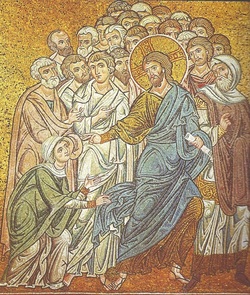 Just as Jesus offers mercy to His people, so too are we called to be people of mercy. Through Baptism He anointed us to also proclaim liberty to captives and to help those who are blind to His ways. We are called to help the oppressed go free in whatever way we can. This might be through helping someone to get needed care in battling addiction, or to help someone who thinks they are unlovable to know they are indeed loved. It might be in aiding one who is captive to a habit, a toxic relationship, poverty, neglect, sickness, or injustice, to find the care they need. Possibly it is to simply sit with someone from time to time, letting them know they are important to you and that they are not forgotten because of their imperfections. As Jessica Powers put it, we are all fumbling, surrounded by our own fragility and that of those around us; but Jesus is always near. Perhaps part of our call is to help others hear the footsteps of the Lord, especially those who have been unable to perceive them. Or perhaps we are the ones who need to recognize that Jesus never abandons us though we fumble and are often fools. It is only if we try to cling to the ‘voluminous robes of His mercy’ (The Garments of God) that we can know the love He offers us. And if we can clutch His robes, we can reach out and take the hand of another, helping them to grab ahold of the fabric of His love, too. May we trust the power of God’s mercy! May we approach God, grasping the ‘voluminous robes of His mercy’ when we are suffering or feeling lost! May we be beacons of that same mercy and love to those who are unaware that they too are loved in this way! May we have the awareness of the footsteps of Jesus behind us! May we be filled with gratitude for the mercy and love of God! And may we continue to desire to grow in holiness, focusing not on our sin, but on the invitation into God’s mercy, seeing ourselves as He does! Let us continue to meet in the Heart of our Merciful Savior! Peace! ©Michele L. Catanese * There is not much on the internet which I could find that was helpful as to the biography of Jessica Powers. Here is one link: https://en.wikipedia.org/wiki/Jessica_Powers. However the best biography I know of is in the book of her poetry, of which I have a well-worn copy. It is called Selected Poetry of Jessica Powers, edited by Regina Siegfried and Robert Morneau. ** Here are links to each of the two poems I quoted. The text of The Garments of God can be found at https://alifegivinglent.wordpress.com/the-garments-of-god/ The text of Repairer of Fences can be found at http://www.philipchircop.com/post/44312711499/repairer-of-fences. The first image is an inset of God the Father which is part of a larger icon, She Who Reigns, by Fr. William Hart McNichols. The image of God the Father is brilliantly painted, and is one of my favorite versions of God the Father. You might notice that Fr. Bill modeled the Father on the one done by Michelangelo in the Sistine Chapel. The entire icon can be found at http://fineartamerica.com/featured/she-who-reigns-276-william-hart-mcnichols.html. Next is one of my own photos. It was taken in South Dakota. I chose it because it represents life in the midst of an unexpected place; life thrives even in the desert when we can hear the footsteps of a Savior behind us. Next is an image, also by Fr. William Hart McNichols. It is called The Galilean Jesus. It can be found at http://fineartamerica.com/featured/the-galilean-jesus-266-william-hart-mcnichols.html. Following Jesus is another of my photos, taken on a path on Copper Mountain in Colorado. Last is a mosaic of Jesus encountering the hemorrhaging woman who reached out and touched His robes. The Mosaic is found in The Cathedral of Monreale, in Monreale, Sicily. 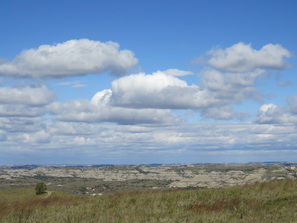 When we last met we were at the Jordan River. At the river, John the Baptist made sure that his disciples knew that he was not ‘the one,’ but that they were to look to Jesus of Nazareth. The prophet they so trusted said Jesus was the Lamb of God. Even if they were not exactly sure what that meant, they began their journey as followers of Jesus filled with joyful excitement, and probably a little trepidation, as they were going off into unknown new lives. It appeared that some of them immediately knew that Jesus was indeed someone special, not just because John said so, but because there was something about Him that was compelling. Either way, those first disciples had received a serious call and they intended to follow. The men who would become Jesus’ closest friends and followers knew in their hearts that they were to go where He led. And where did Jesus lead them as they left the Jordan River? After a personal detour out into the desert alone,* He led them straight to a celebration of the most wonderful kind. And to this event, we travel with them.  It is ironic, then, that as we went forth from the river with Jesus, along with Peter and Andrew, James and John, we did not end up in the home of a sick person or one who was lost and in need of being found. Rather, in Sunday’s gospel, we found ourselves at a week-long party, the wedding of a friend or relative of the family of Jesus. (John 2:1-11) He was there with His mother, and the passage tells us that some of His disciples were present, too. In the midst of the merry-making of the occasion, quite a momentous event occurred: Jesus worked His first miracle which was to turn water into wine. There are many connections with the sacraments (such as Baptism and Eucharist) in that miracle. These things are all important, but I would like to focus on a different aspect of what transpired that day. The miracle that took place was behind the scenes with only a few people knowing exactly what had happened. It seems that He did not want to detract from the rejoicing of the bride and groom through the seriousness of the step He had just taken. We should not forget that prior to the first miracle Jesus was enjoying Himself at this wedding, (that is, He was having fun); and after the miracle I am sure the joy did not end given that there was now anywhere from 120 to 180 gallons of really good wine present! But even with the seriousness of His ministry having begun, and hence movement toward His death, we must keep this in context. Jesus worked His first miracle in the midst of a party. There is nothing trivial about the event or that He was enjoying the celebration.  This passage contains an incredibly important reminder about the nature of our lives with Christ: it is not always about solemnity and seriousness. While there is a time for that, we must not miss the message that we are meant to find joy where it is offered in life because joy is a gift of God. Though we cannot forget that life contains suffering, some of which is heartbreaking and achingly difficult, even in the midst of this there is a type of joy in the support of family, friends, and the presence of grace in the midst of it all. I do not mean to minimize the effects of suffering. But we must remember that through Baptism Jesus joins us to Himself, and also to one another, so nothing we do is really alone. Furthermore, the real gift of joy is often deeper than simply feeling good. Joy is a spiritual gift, a reality, and therefore it is more than an emotion. Of course, we can indeed feel joy in the form of happiness, contentedness, ecstasy, humor, and many other expressions that emanate from the gifts of God. True joy is a spiritual state, however, and flows from the gift of God’s love and mercy for us. It is important to accept the gift of joy and also to continue to grow in awareness of the places in which it is offered. To experience this gift, and also to savor it, we must foster a sense of gratitude because usually joy is an appropriate response to something God has given us. We respond in joy because we recognize that we have received something which is not about our worthiness, but rather is about sharing the gift of love with others. The table around which our families and friends gather for a seemingly ordinary dinner of no special occasion is one place in which we can find joy. The baptisms, first Communions, and weddings we attend are also times of joy. Whether it is an event or simply a time to be with those whose presence we value, it is important to remember that these shared experiences are gifts of love from God. We must keep in mind, however, that they are also part of the journey, part of the ministry of the followers of Jesus. If we look at the ministry of Jesus in the gospels we will see that He was often eating and drinking with friends, sometimes with strangers, and occasionally in the presence of detractors. Our lives as disciples should also be filled with both the solemn and the mirthful. Being a follower of Jesus means not only going into the dark places to bring light, but also into the places where we share joys in order to find new life there. 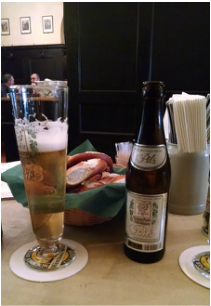 Just as Jesus found that the time to reveal His ministry was during the revelry and joy of a wedding, we can find the presence of Christ in joyful moments, too. We do not stop being disciples during the fun moments and then start up again when we get back to seriousness. This is because we are always whole people: we do not compartmentalize who we are depending upon what we are doing. Being a disciple means integrating all of our gifts into all of life. And if we cannot find laughter and joy in the midst of even the most ordinary of times, then when difficult times come we might find them overwhelming. In difficulty we will need to rely upon the joy of knowing that we are not alone and that Jesus is with us deep within our hearts, beyond the realm of feeling. During times such as those, joy becomes a powerful gift. If we bring joy with us as we minister to those who are in need, they will be helped in persevering, or in moving toward healing, because of it. A smile is often returned; it can melt even the hardest heart or the one which is suffering so direly that it needs to find light in the eyes of the one who is with them. In reflecting upon the ministry of Jesus, I imagine there was joy in His eyes as he healed a leper, the woman with the issue of blood, or the one who He had unbound from sin. As He walked on water there had to be joy in seeing the astonishment of His friends who were beginning to grapple with the understanding that He was the Son of God. Jesus must have experienced joy every time He brought life where there was none. Followers do as the Master does, and so we are called to bring joy where we minister and to accept joy when it comes to us. If Christians were dour and serious all the time, then who would want to follow? Indeed, being a member of the Body of Christ is the most joyful gift we could receive and share. Therefore we must remember that joy is a gift and we do not have to conjure it up ‘out of the ether.’ Rather the source of our joy is in the reality that we are loved by God just as we are. When we gather around the table of celebration or when we encounter friends and strangers in the midst of our daily lives let us smile, let us laugh, and let us share joy. As the Bridegroom rejoices with His bride, so shall we rejoice!** 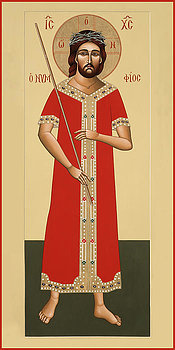 As we go forth from the river into the journey outward into our ever changing lives, may we remember to bring joy with us and to find Jesus in the midst of every gathering! May we remember that we are as much a witness when we are actively ministering to someone in need as when we are enjoying a gathering and simply having fun! May we bring laughter and joy to those who are most bereft of these gifts! May we do our works of mercy and charity in a spirit of gladness and joy! And may we recognize the gift of God’s love and mercy for us so that it may lead us to gratitude and the desire to share it with others! Let us continue to meet on the journey into the Heart of Jesus! Peace! ©Michele L. Catanese * In the Gospel of John there is no reference to the temptation in the desert, probably because his gospel was written last and he knew his readers already were aware of that event from the synoptic gospels. John was writing about seven events that he called signs in order to truly reveal who Jesus is as Son of God. Therefore he went straight from the River of Baptism into Jesus’ three year ministry. ** The reference here is to the first reading from this past Sunday. It is the last verse in the passage, Isaiah 62:1-5. All the photos are mine. -The first is a view out over the plains in North Dakota. -The second photo is of the cake at a recent wedding which I attended. It was a beautiful and very joyous event at which much fun was had! -The third photo is of the Atlantic Ocean from Westhampton Beach in Long Island, NY. In the spirit of fun, I used it here because it could look as if Jesus had just walked on the water since the footprints are coming out of the surf, but there are none going in. However, I have to be honest: those are my footprints and I definitely do not walk on water. It was just a lucky shot. -The final photo was taken at the Augustiner in Munich. It is a beer hall and restaurant. The food and the beer were really quite good and a good time was had! At the end of the entry is an icon by Fr. William Hart McNichols called Christ the King The Bridegroom. It can be found at http://fineartamerica.com/featured/christ-the-king-the-bridegroom-066-william-hart-mcnichols.html. 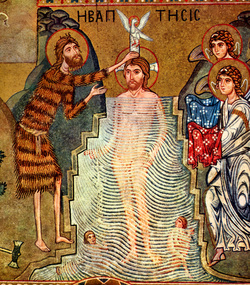 Have you ever wondered why the Baptism of the Lord is considered part of the Christmas season? It may seem an odd or even abrupt end to this short period in which we celebrated the mysteries of the birth of the Son of God into our world: angels singing magnificently to glorify God, the Magi and shepherds flocking to the manger, and the Holy Parents in profound adoration of Jesus. But though we have no figure of John the Baptist or a rendition of the Jordan River flowing in our crèche scenes, it seems to me that maybe we should! Just as all the figures in our scenes represent the mysteries of Christmas, the Feast of the Baptism of the Lord truly sums up all the lessons contained in the season thus far. This final feast not only continues to focus our attention on His identity, but it also reminds us of why He came into the world in the first place: He came to save us. After His baptism, Jesus will move forward to accomplish the mission for which He entered the world, and so all that came before this event culminates at the Jordan. The angels are still singing, though perhaps behind the scenes, and there are still followers, though they are probably not the people who had worshiped at the manger, and the profound adoration of Jesus is still alive in Mary, who continues to ponder and invites us to do so also. In some ways, nothing has changed, but now is the time for Jesus to move outward towards the reason we celebrated the season. The readings this Sunday are filled with examples of why this feast is so important to the season of Christmas. The lesson in the Gospel (Luke 3) is obvious since Jesus is proclaimed by the Father as the Son of God, the one for whom we waited so patiently (and maybe not so patiently) over the weeks prior to December 25. The Christmas season is about welcoming the newborn King into our world, but we also stepped back almost immediately to reflect upon the effects of His coming. We observed the joy of angels, shepherds, magi, and prophets. We also saw what greed and narcissism did to Herod who was threatened by the presence of a baby, and we ‘watched’ with horror when Mary and Joseph had to flee Herod's juvenile wrath. Much of what lies in the years after these events in Scripture is a mystery, but when Jesus appeared at the Jordan River to be baptized, the Father made it clear that the child at the manger who is now a man, is indeed the One for whom we waited. The waiting is over and Jesus’ ministry is ready to begin. All the lessons of the season up to this point are now activated to propel us outward into our lives with Jesus. 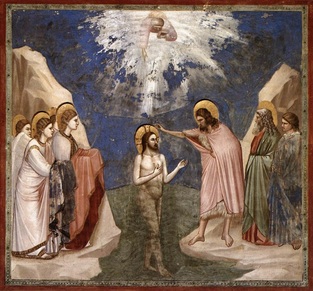 One very important insight we gain in the Baptism of Jesus, however, is about the gift of God’s mercy. The first reading for Sunday from Isaiah (Is 40: 1-5, 9-11) reminds us that Jerusalem, (a representation of the entire people of Israel), did not deserve to be forgiven after the sins which led them into destruction. But a voice cries out with triumphant joy that the people are to “prepare the way of the Lord” who will “fill in every valley” and “reveal His glory.” They are told “fear not” and “here is your God.” These people had sinned horrifically, yet God in His mercy was not only bringing them home safely, but He was revealing His glory to them through the reminder that a Messiah would come. They certainly seem unworthy of such a great gift, but nonetheless there was great joy at this homecoming crafted by their merciful God. Then in the second reading (Titus 2:11-14; 3:4-7) the author writes a stunning line: “When the kindness and generous love of God our savior appeared, not because of any righteous deeds we had done but because of his mercy, he saved us through the bath of rebirth and renewal by the Holy Spirit, whom he richly poured out on us through Jesus Christ our savior….” We are saved not because of our own merit, but because it is simply in the nature of God to love us this way. Like the people of Jerusalem mentioned in Isaiah, we do not deserve God’s forgiveness and we do not deserve the gift He gives us in Baptism. But He offers it to us anyway. The Feast of the Baptism of the Lord demonstrates to us what mercy is, and it is the same Jesus who came into the world at Christmas who personifies the unfathomable mercy of God. 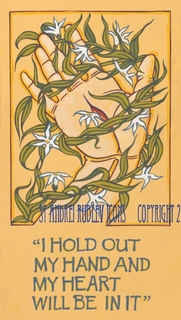 Mercy is this: to love and do that which love requires not because a person deserves it, but because it is what Love does. If the person does deserve it, than what we are offering is kindness, not mercy. Of course, this is a good thing, too, but there is a difference between the two. True mercy is offering our gifts to others, not because we think they deserve them, but we do so when they do not deserve them, and even better, when they least deserve them. This is how God loves us. Jesus came into the world not because we merited it, but because God has always loved His people with a love beyond our comprehension. In truth, it is not about our worthiness: it is about having the humility to accept this gift because not to do so would be to do ourselves great harm and it would be an act of ingratitude to the One who loves us so dearly. When Jesus was baptized by John in the Jordan River He was offering us the ultimate in the mercy of God: we, the undeserving, are invited into the mystery of God’s love in the same way that Jesus is. Jesus did not need baptism, rather He is baptism. Because of His mercy we are invited into His death and resurrection and are given the gifts of faith, hope and love, which are at the heart of what it means to be a Christian. For us, these gifts are the foundation of how to live with mercy. And like Jesus, we are to share these gifts with those around us whether they deserve it or not. 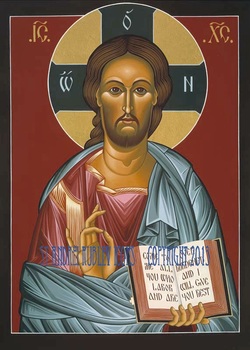 In this Jubilee Year of Mercy it seems that this lesson cries out to us. Living mercifully is what makes us a true disciple of Jesus; it helps us to grow in relationship with God and hence, we become sanctified. Therefore, we are to act with mercy toward those who threaten us (like Herod); toward those whose customs or religion we may not understand (like the Magi); towards those who are poor or do not conform to the standards of society (like the shepherds); towards those who may say and do things that seem a bit odd (like the elderly prophets Simeon and Anna); towards those who seem to be above us in status or education (like the rabbis in the Temple); and towards those in political power (like the Romans and Herod). In each of these situations mercy may be acted upon differently. It may mean remaining hidden and humble. It may mean retreating from sight so as to avoid the threat of harm until we are stronger. It may mean opening our homes and our coffers. It may mean listening to the opinions of those with whom we disagree. But no matter what the circumstance, we are to discern how to best act with mercy toward the one who we think least deserves it, because at the end of the day they are really not unlike us at all. The Christmas season fittingly culminates with a joyous lesson about what Jesus had come to offer His people. The Feast of the Baptism of the Lord reminds us of the great gift of God’s fulfilled promises in the coming of His Son. It teaches us to accept with gratitude the gifts we have been offered, especially the gift of God’s mercy. This feast also teaches us that it takes time and preparation to become ready, and that at some point we have to leave the security of the stable and venture out to the river. And it is a reminder that the gift of mercy we have been given, we are to give as a gift. Let us continue to rejoice with the angels who sing of God’s glory because we are given such incredible love and mercy through the coming of a baby who grew to reveal that He is the Messiah and Lord so that we might follow Him into Heaven. Let us have a joyous finish to our Christmas season as we gather at the Jordan with John the Baptist and Jesus.  May we recognize the great gift of mercy and love revealed to us during this Christmas season! May we be filled with gratitude in receiving God’s mercy through the gift of Jesus who offers us Baptism! May we learn how to give the gift of mercy, especially to those whom we find challenging! May we learn the patience of prayerful preparation which enables our growth in holiness! And may we accept the unfathomable love and mercy of our God who came in to the world as a vulnerable baby in order to offer us the wealth of salvation! Let us share in the joy of the angels as we meet at the river! Peace! ©Michele L. Catanese The first icon is a mosaic of The Baptism of Jesus by John the Baptist which is in the Palatine Chapel in Palermo, Sicily. This chapel is magnificent in its iconography and this is one of many mosaics that depict biblical scenes. Next is another version of the Baptism of Jesus. This one is by the medieval painter, Giotto, who is one of my favorite artists. I like the vivid colors and clarity of his work. Next is an image painted by Fr. William Hart McNichols called I Hold Out My Hand and My Heart Will Be In It. It can be found at http://fineartamerica.com/featured/i-hold-out-my-hand-and-my-heart-will-be-in-it-225-william-hart-mcnichols.html. This image speaks to me of the tender, boundless mercy of God. Next is an icon, also by Fr. William Hart McNichols called Christ All Merciful. It can be found at http://fineartamerica.com/featured/christ-all-merciful-022-william-hart-mcnichols.html. Finally, the last image is a photo I took while at Big Bend National Park in west Texas. This is the Rio Grande River in the sunshine on what was a glorious day. One could almost hear angels glorifying God (if one listened intently with all one's senses). 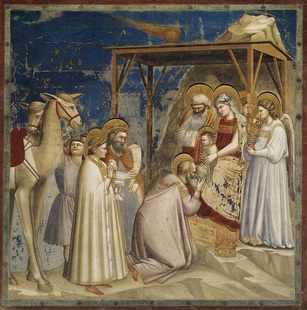 This week we celebrate the Feast of the Epiphany. We are quite familiar with the image of magi and their camels lumbering into Bethlehem and finally to the stable where the Christ-child lies in the manger accompanied by His parents and maybe some shepherds. Our crèche scenes always limit the Magi to three, probably because we are equally familiar with the three gifts given by them, hence we think of them as only three. In the retinue that came to the place of Jesus’ birth, the most important gift bearing ambassadors may have been only three, but there had to have been other people traveling along with them. However, the number of people in their company is not what is important. What is important is that the Magi came seeking something, or rather someone, and in doing so received an epiphany. That is, they received a revelation, a new understanding about themselves and the nature of their journey. When the Magi embarked upon their journey they were following what they perceived to be an omen, an overly large, too-bright-to-be-normal star often referred to as the Star of Bethlehem. To them it was a sign that something special was about to happen, and in fact, they believed it would lead them to an important king who would be newly born. They were not Jewish and so their faith was such that they believed that the stars could portend omens of this sort. They were seeking this important person by following where the omen-star led them. We know that they bore gifts for this great king-to-be-found, and we know that when they got to Bethlehem they were able to find the stable where Jesus was indeed a newborn. But what they found was not exactly what they had expected when they began the journey: the king they found was the Son of God. It seems that they believed and that they did Him homage, offering up their precious gifts of frankincense, gold, and myrrh. The epiphany that they received, at least the obvious one, was a new understanding of God and how He works. They came to find that the King in the manger was greater than any king they could have hoped to find. From this revelation and whatever else they needed to receive, their eyes and their hearts were opened to a new reality which changed them forever. 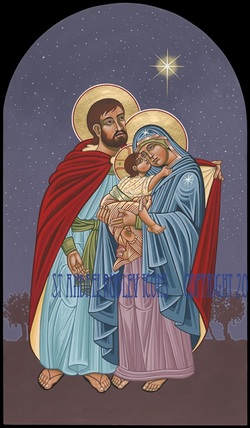 An epiphany is different from ordinary knowledge or the insights we gain through learning. It refocuses our orientation from ourselves to something outside of ourselves and it is something that deepens our understanding of reality. Just as the Magi went from seeking an earthly king when they set out, to recognizing a King who came from heaven to join us on earth in order to accomplish something too great for them to imagine, we too are invited into the journey of Epiphany so that we may learn to recognize Him in different ways than we did previously. I do not think their epiphany was instantaneous, taking place the moment they laid eyes upon the baby Jesus. Somehow it seems that it was in the process of the journey that their minds and hearts began to open to the possibility that something more wonderful was at hand. An epiphany can come in any way God wants to send it, but I daresay that a true epiphany is something that we have to be prepared to receive. Just as we had four weeks in Advent to prepare for the ‘arrival’ of Jesus, we have had the subsequent days of the Christmas season to prepare for whatever it is that God wants to reveal to us in our encounter with Him. Lest we forget, the process of waiting and yearning does not stop with the arrival of Christmas. In fact, the lesson here is that we never stop waiting and yearning until we arrive at our true home with God forever. If we stop this process, we will cease to receive the subtle (and not so subtle) ways in which God reveals Himself and His mercy to us. And like the Magi we must follow the star to the stable, but we must leave by a different route as we take what we have learned out into the world, continuing to seek ways to live this newness. 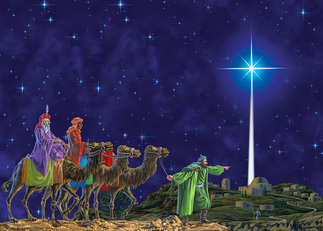 One important epiphany for the Magi was their discovery of the gift of discernment. If we look to the gospel for the Feast of Epiphany, (Matthew 2:1-12) we see that upon arrival in Judea the Magi were called into a private meeting with King Herod. The secrecy and smarminess of his request to know where the baby was may have alerted them to the fact that something was amiss. Their eventual discernment was that Herod was not to be trusted no matter how convincing he seemed in his feigned desire to pay homage to the Child. The Magi had learned that not everything that was alluring was something good to follow. The Star of Bethlehem was a light to be followed because it brought them to God. Perhaps since they already did not trust the intentions of a king who had met with them surreptitiously, they felt that the dream they received was more consistent with what they had learned about God on their journey. Revelation often comes little by little, and at some point the Magi understood that Jesus would be a threat to the established order because He is Truth, the light shining in the darkness of the world’s deceit and falsehood. After coming face to face with Jesus they seem to have realized that God acts in light and not in darkness. They came to know that Jesus was Light and Life; from Herod would come darkness and death. Perhaps this Epiphany we are called to be like the Magi focusing on three things: whatever it is we seek in Jesus, what it is we bring to Him, and what we take away with us. Whatever it is we seek in Jesus, it is right in the manger where He lays. He is Mercy, Compassion, Light, Truth, Wisdom, Comfort, Forgiveness, Life, and Love, to name only some of His attributes. All that we seek is found in Jesus, so we can follow the Star which leads us to Him. Once we come to the manger, we can let Him reveal to us what He knows we really need. Next, what do we bring Him? Hopefully it is a heart which is emptied and ready to be filled anew. The only thing we can really give Him is ourselves, imperfect though we are. Finally, what do we take away with us? When the Magi left their precious gifts at the feet of the tiny Baby, spending time adoring Him, certainly they left with more than they had when they arrived. The greater gifts were not the material things they brought, (symbolic though they were), but rather what they came away with. In any encounter with the living God we always come away with gifts of grace. So then, whatever it is we seek in Jesus, know that in our encounter with Him during this Christmas season, whatever it is we seek in finding Him, whatever it is we bring to Him, we come away with the greater gift. No matter what it is He gives us, to each it will be what we uniquely need, not some generic one-gift-fits-all kind of thing. And no matter what epiphany He gives us, we will walk away from the manger on a different path, richer for the meeting, because we will be changed. There is no going back the way we came. That path is no longer possible. 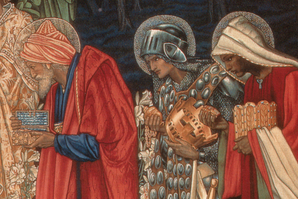 This Epiphany let us seek the Lord in a new way and let us open our hearts to the message and gift He has for us. I cannot tell you what that is. Only Jesus can do that. But what I can say is that in the encounter He will offer ‘oceans of mercy,’ as Pope Francis has said; Jesus will offer new life, new freedom, new perseverance in our sufferings or problems, hope, forgiveness of our sins, strength for the living, and an abundance of gifts for us to share so others may come to know Him as we do. The gifts we take away with us become part of us and so they will touch others when we reach out in love and mercy. Let us be like the Magi: wise enough to follow, patient enough to make the journey, faithful enough to believe what we see when we get to the manger, humble enough to offer all that we are, grateful enough to accept what He offers, hopeful enough to accept the new path by which we depart, and trusting enough to know we take Him with us, even if He is unseen or unfelt. Epiphanies are not just a one-time event: they continue to evolve. Let us take the 'wealth of nations' with us so that we may be radiant at what we see so that our hearts may throb and overflow. May we persevere in our journeying with Christ! May our hearts be open to the epiphany which the Lord has as a gift for us! May we have the courage to ask for what we seek! May we have the humility to offer our gift of self to the Lord! May we have the trust to take a new path, knowing that He comes with us! May we be like the Magi with the wisdom to discern what is from the Lord and what leads us on the road to danger! May we be willing to invite those who do not yet know Jesus to accompany us on the journey to the manger! And may we accept the gift God has for us, so we may truly be wise men and women open to sharing His oceans of mercy with those whom we meet! Let us meet on the journey into the heart of Jesus! Peace! ©Michele L. Catanese -The reference in both the title of this entry and the last sentence of the second paragraph from the end is to Isaiah 60:5. The first painting is the work of Giotto. It is called Adoration of the Magi. Next is an icon called The Holy Family for the Holy Family Hospital of Bethlehem by Fr. William Hart McNichols. The original hangs in Bethlehem, Israel as the title indicates. You can purchase a copy at http://fineartamerica.com/featured/the-holy-family-for-the-holy-family-hospital-of-bethlehem-william-hart-mcnichols.html or if you like the framed border at http://fineartamerica.com/featured/the-holy-family-for-the-holy-family-hospital-of-bethlehem-with-frame-william-hart-mcnichols.html. Next is the Magi arriving near Bethlehem. I have no idea who painted this because it came to me on a Christmas card a number of years ago. Last is actually a tapestry, not a painting. It is The Adoration of the Magi by Edward Burne-Jones, designed in 1888 and woven in 1894. It can be found at https://commons.wikimedia.org/wiki/File:Adoration_of_the_Magi_Tapestry.png. This work is in the public domain in the U.S. |
Heart Speaks to Heart
|

 RSS Feed
RSS Feed

